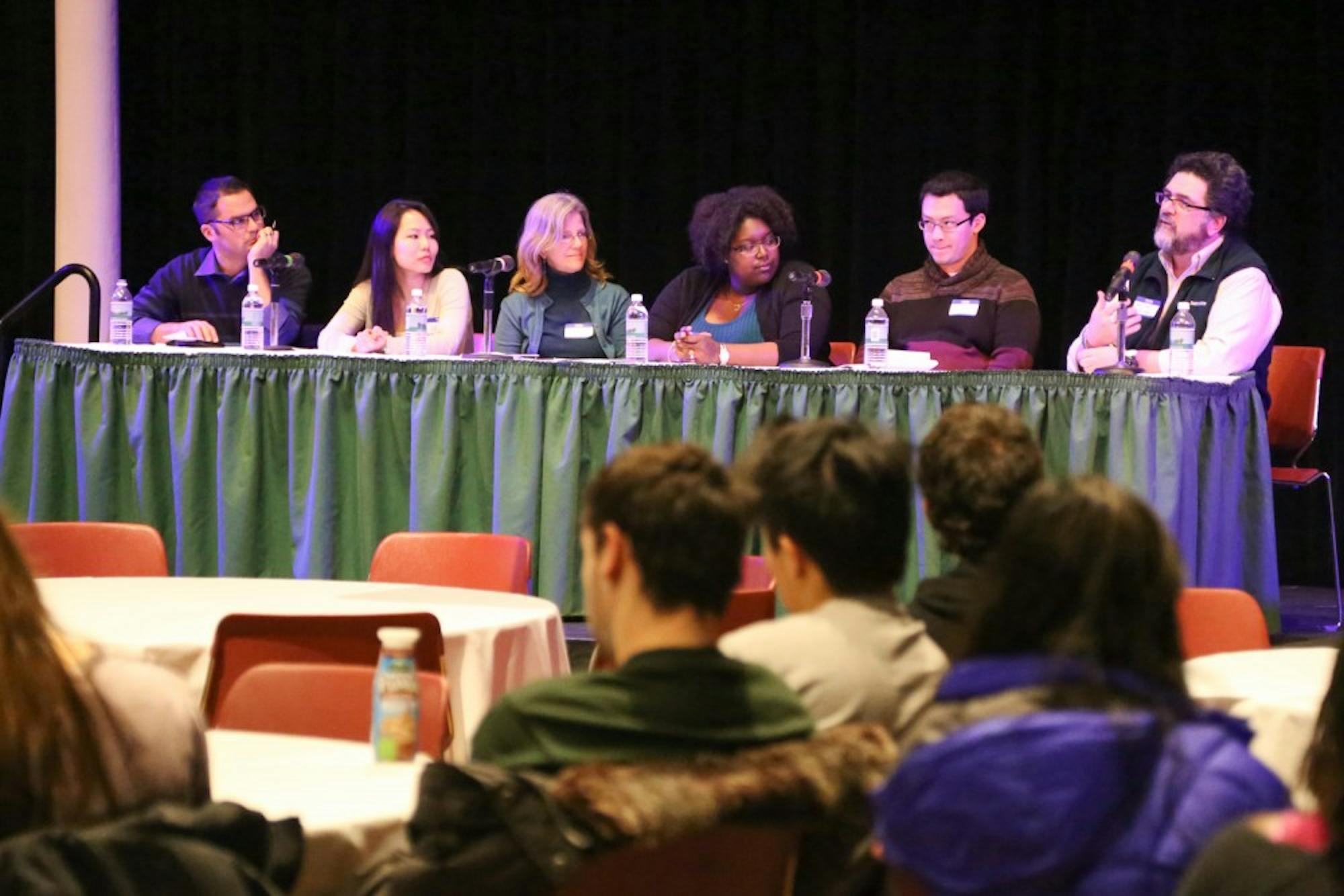On Thursday evening, six panelists shared personal stories about coming to Dartmouth from low-income backgrounds, describing the difficulties and surprises that they have experienced. The panel, called “The Taboo Identity,” and small-group discussions that followed fostered dialogue about socioeconomic identity on campus.
The panel was organized by students in the College’s Quest Scholars chapter, the Dartmouth branch of the nationwide Quest Scholars Network. The network matches high-achieving low-income students to top-tier colleges, and Dartmouth’s chapter works to unite and support students interested in discussing class and related issues.
Students in the chapter were inspired to host the panel after participating in an Intergroup Dialogue session, Dartmouth Quest liaison Ilenna Jones ’15 said.
Group members hoped the event would increase dialogue about socioeconomic class and background at Dartmouth. Quest scholar Kelsey Justis ’16 noted that on an economically diverse campus like Dartmouth’s, some students associate a “feeling of shame” to coming from a low-income background.
Justis said he hopes the panel sheds light on the financial divisions present on campus.
“People don’t understand that socioeconomic status is a concrete part of one’s identity,” he said.
The six panelists were Center for Professional Development community outreach coordinator Jennifer McGrew ’13, psychology and brain sciences professor John Pfister, pre-health advisor Sarah Berger, Hui Cheng ’16, Frankie Herrera ’13 and Karlos Santos-Coy, who works in the Office of Pluralism and Leadership. Speakers discussed their lives before coming to Dartmouth and experiences with socioeconomic status and identity once they arrived at the College.
Many of the speakers said that coming from homogeneous low-income communities and households made them feel ostracized when they came to Dartmouth.
“The norms at Dartmouth are so different from the norms of my family and community,” Cheng said.
She contrasted the luxuries and conveniences that she feels many students take for granted at Dartmouth with attitudes toward money back home. Her parents, Chinese immigrants living in Nashville, Tenn., both waited tables to support her family.
Berger also discussed the role of privilege on college campuses.
“I almost felt like some people had a golden pass to the ball,” she said. “Sometimes I just wished I felt a little freer.”
Many panelists said they felt they have had to work hard to be able to live comfortably at the College. McGrew and Herrera both said the first thing they did on campus was visit the employment office.
As the Collis Center for Student Involvement’s night manager, McGrew spent most of her nights confined to a desk while many of her friends from class were free of such responsibilities, she said. Speakers also discussed the stigma and lack of understanding some community members feel about their socioeconomic status.
“I had a [professor] that told me I had to quit my jobs to keep up with the work of the class,” McGrew said. “How was I supposed to buy my books then?”
Speakers also discussed some of the difficulties of being first-generation college students. Pfister said he received love and support when talking on the phone with his parents but, because they did not attend college themselves, they were unable to give him guidance about how to navigate school.
Santos-Coy said this lack of direction from mentors and older family members led him to spend nine and a half years at his undergraduate institution.
“First-generation students don’t know what they don’t know about college,” he said.
Some students, after hearing the panelists’ stories, said they were surprised by the dramatic impact of socioeconomic diversity on campus.
Scott Nelson ’14 said the panel made him realize how much many students take for granted.
Derek Leung ’14 said that the panel made him consider the things he does not always appreciate but is lucky to have.
“It’s sobering,” he said, “that Dartmouth is so biased towards people of a higher socioeconomic status.”
The article has been revised to reflect the following correction:
Correction appended: Feb. 21, 2014
The initial version of this article misidentified one of the panelists. She is Hui Cheng '16.




